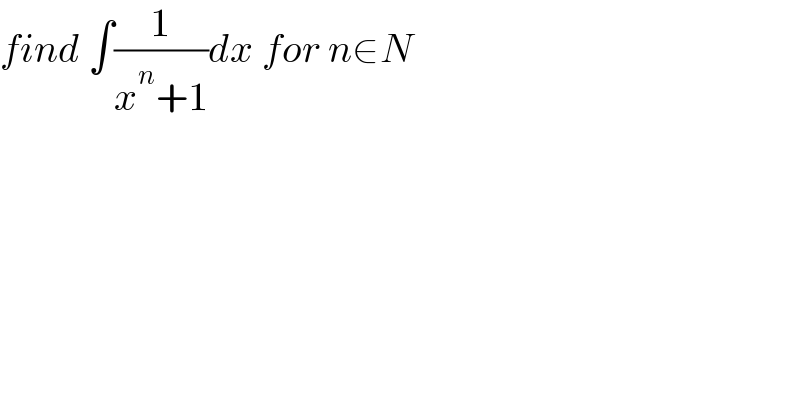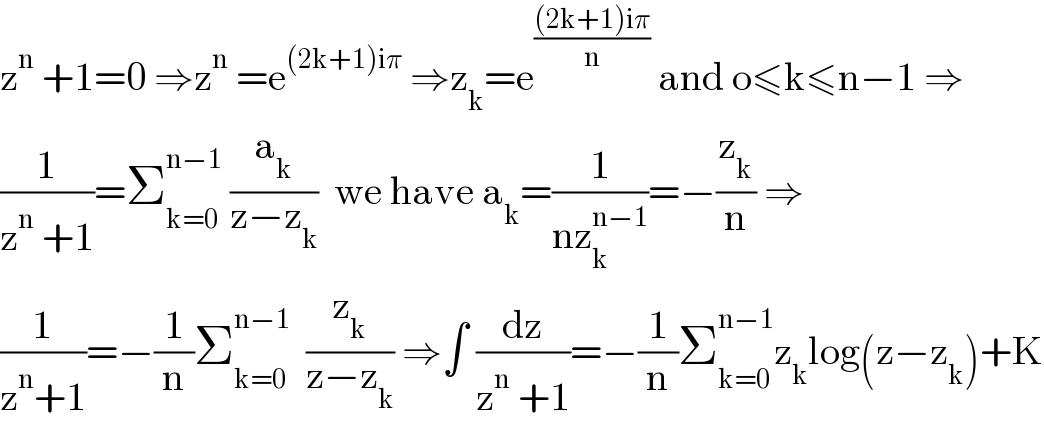
Question and Answers Forum
Question Number 146361 by gsk2684 last updated on 13/Jul/21

Answered by mathmax by abdo last updated on 13/Jul/21

Commented by gsk2684 last updated on 13/Jul/21

Commented by mathmax by abdo last updated on 13/Jul/21

Commented by gsk2684 last updated on 14/Jul/21

Answered by Snail last updated on 13/Jul/21
![∫((x^(n−1) dx)/(x^(n−1) (x^n +1))) =(1/n)∫(( dt)/(1+(1/t))) where x^n =t(let) =(1/n)[∫dt−∫(dt/(t+1))] =(1/n)[t−ln(t+1)+C] =(1/n)[x^n −ln(x^n +1)]+C](Q146437.png)
Commented by gsk2684 last updated on 14/Jul/21

